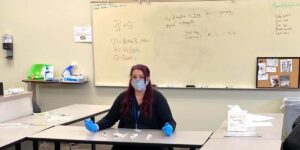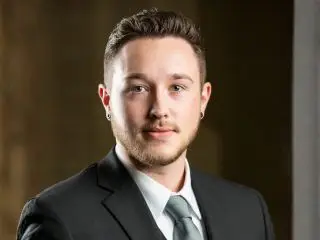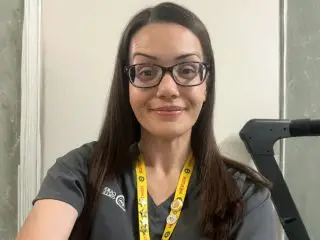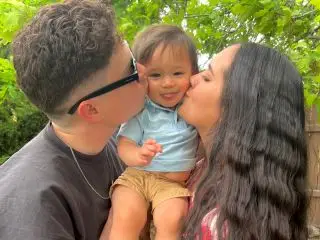 If you’ve ever doubted that education can be a passport to a better life, just ask Tayler Bennett. Six years ago, when she was 19, Tayler was working 60 to 80 hours a week as a customer service rep at a Boise, Idaho call center. She worked an additional 20 hours a week as a trainer at McDonalds.
If you’ve ever doubted that education can be a passport to a better life, just ask Tayler Bennett. Six years ago, when she was 19, Tayler was working 60 to 80 hours a week as a customer service rep at a Boise, Idaho call center. She worked an additional 20 hours a week as a trainer at McDonalds.
“It was the most stressful, unhappy time of my life,” Tayler recalls. “My mother was undergoing cancer treatment and I was struggling to pay our bills so that my younger sister, my mom and I had a place to live. Even though I was doing the best I possibly could, it wasn’t enough. I was working too hard for too little.”
Tayler knew things couldn’t continue as they were. “Without an education, I was just going to continue spinning my wheels and struggling to make it,” she says. “As horrible as that time was, it served a purpose because it reminded me of the kind of life I didn’t want for myself. Sometimes you just have to stop, take a really hard look at your life, and make necessary changes.” That’s exactly what Tayler decided to do. Over the next six years, she earned her pharmacy technology certificate and her Associate of Science in Pharmacy Technology, both from Carrington College in Boise. Now 25, she works as an Inpatient Pharmacy Technician at St. Luke’s Meridien Medical Center, and also teaches Pharmacy Technology as a visiting instructor at Carrington.
“For me, Carrington was the right place at the right time,” Tayler recalls. “I needed a career instead of a job, but I wasn’t really sure where to start. When a friend told me about Carrington, I checked out their website and called the same day to book a campus tour.”
Once Tayler decided to go back to school, things quickly fell into place. “When I first visited the campus on Wednesday, I wasn’t even sure which program I wanted to enroll in,” she recalls. “After I saw the school lab and researched the job prospects and growth potential for pharmacy technicians, I decided to pursue the Pharmacy Technology certificate program. I signed up two days later on that Friday. The program enrolls a new class every six weeks, and it just so happened that the new class was beginning the following Monday. So five days after my campus tour, I was sitting in a classroom.” In August, 2015, Tayler completed her ten month program, which included a 240-hour externship at St. Alphonsus Regional Medical Center in Boise. She passed the Certified Pharmacy Technician (CPhT) national certification exam and applied for three positions at Boise-area hospitals. She was offered all three jobs and accepted the position at St. Luke’s that she still holds today. Tayler says that while many people assume all Pharmacy Technicians work at a retail pharmacy such as those located at CVS or Walgreens, there are a variety of other positions within the industry, including working for pharmaceutical companies, hospitals, and health care companies.
“Some of our graduates work in closed door pharmacies, servicing long-term care facilities,” she said. “Others work in hospital pharmacies, filling orders for hospital nursing staff. You can also work as a Medical Reconciliation Technician in a hospital or at a compounding pharmacy, creating specific medications tailored to a patient’s special needs. That’s one of the things I find so appealing about the pharmacy field. There are so many options for employment.”
After three years at the hospital, Tayler heard Carrington was hiring a Pharmacy Technology instructor. She learned that the position required an Associate of Science degree, which she was already planning to pursue. She also discovered that she was eligible to apply as long as she was actively working toward that degree. She was soon accepted into the program—and was also hired for the visiting instructor position. For a year, she worked full-time at the hospital while completing her degree and teaching four mornings a week. “Teaching and working as a Pharmacy Technician have more similarities than I first realized,” Tayler says. “Both require attention to detail, a high level of precision, and strong analytical and communications skills. I feel incredibly grateful to be doing two jobs I really love.” While the past six years have often been challenging, Tayler says the payoffs have been worth it.
“Whenever I’m talking with a student who is struggling with self-doubt or second-guessing their decision to go to college, I share my story with them,” says Tayler. “I remind them that if I can do it, so can they. I tell them that even outrageous goals are achievable if you just stay focused and keep working toward them. I think the secret is to always keep moving forward in the direction your dream. You can’t get stuck unless you stop.”



